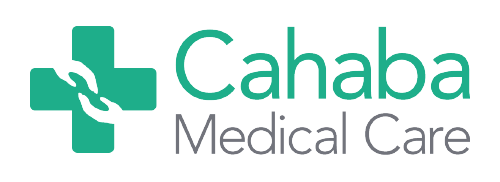Colorectal Cancer Prevention at Cahaba
As the medical world continues to evolve, it is becoming increasingly important for all individuals to receive proper health care and screenings. Colon cancer is one of the most commonly diagnosed forms of cancer and one of the leading cancer killers in the U.S., BUT it can be prevented. If colon cancer is detected early, there is better than a 90% survival rate. Unfortunately, many uninsured and low-income patients are unable to afford a colonoscopy and may face grave health risks as a result.
At Cahaba Medical Care, we understand the importance of providing healthcare to everyone, regardless of their financial situation. That is why we offer InsureFIT tests for all patients aged 45 and up. A FIT test is a simple and cost-effective way to screen for colorectal cancer. It is a stool-based test that checks for blood in the stool, which can be an indicator of cancer. While the test is not as comprehensive as a colonoscopy, it is a great option for those who are unable to afford a colonoscopy and can be done in the comfort of your own home.
To date, we have completed more than 10,000 FIT screenings.
In fact, Cahaba Medical Care is a state and national leader regarding colorectal screening. In 2022, we successfully screened 53% of our patients who needed screening, while other FQHCs in the U.S. screened an average of only 42%, and others in the state screened an average of 19%. Our clinical team of medical assistants, providers, and social workers are committed to keeping our patients as healthy as possible and do a great job at identifying patients in need of screening and stressing the importance of screening to them so that they are well informed and willing to participate.
This is one of the many reasons why Cahaba Medical Care has been the highest-performing FQHC in Alabama for over a decade. We’ve also ranked in the top 10% of health centers in the U.S. for the last two consecutive years and in the top 25% for eight years in a row.
However, it’s important to remember that FIT screening is only the first step in colon cancer prevention. What happens if someone tests positive?
This is where Cahaba Medical Care stands unmatched. While most other places have to refer patients to another physician or facility for further assessment to confirm if they have cancer, Cahaba Medical Care can provide colonoscopies at little to no cost through our sliding fee program. These are lifesaving procedures for positive patients as they allow us to detect and treat any potentially cancerous growths before they become a severe health risk.
Daniel is a patient at Cahaba Medical Care whose story is just one example of the impact these services can have. Although he initially didn’t want to, Daniel was convinced to complete the FIT screening and received a positive result. He was uninsured, living on a fixed income, and therefore would have been unable to afford to pay $500+ for a colonoscopy at one of the local hospitals or G.I. practices. Thankfully, he was able to get the colonoscopy he needed at Cahaba Medical Care through our sliding fee program, especially since his results showed that he did have cancer! This was a patient in his late 40s who wouldn’t have even been screened if we hadn’t started the process, and more importantly, wouldn’t have been able to get the follow-up care he needed due to the cost of colonoscopies!
We see more incredible stories like Daniel’s every month at Cahaba in our endoscopy clinic. In fact, 11% of the 3,465 InsureFIT tests given in 2022 were positive, and we performed colonoscopies on 147 of those patients who received a positive test. As a result, colorectal cancer was detected and treated earlier, and outcomes were better.
At Cahaba Medical Care, we believe that everyone deserves access to quality healthcare, regardless of their financial situation. Our endoscopy team is committed to providing a comprehensive range of services, including FIT tests and colonoscopies, to uninsured and underinsured patients. By doing so, we are helping to ensure everyone has access to the health screenings they need to stay healthy and safe.
*Patient name changed for confidentiality




